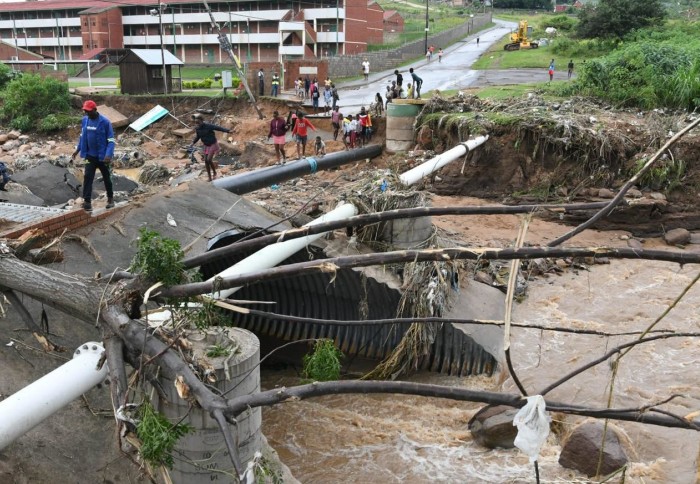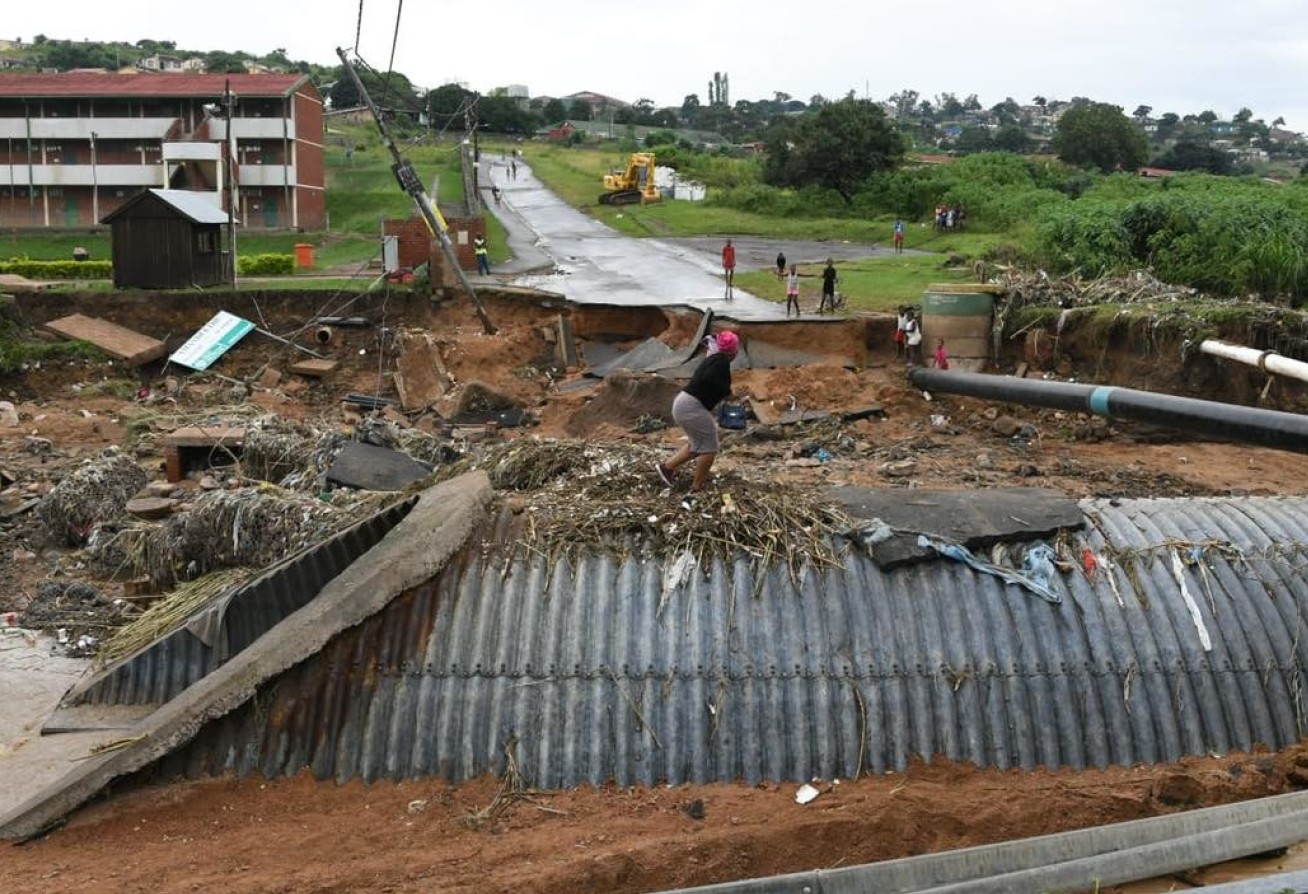Climate change made heavy rain behind South African floods twice as likely
by Simon Levey

Floods in KZN, South Africa, April 2022 – KwaZulu-Natal Provincial Government (via Floodlist.com)
Climate attribution science explains the link between human-made climate change and deadly extreme weather events in South Africa.
Climate change made extreme rainfall that caused massive floods in eastern South Africa in early 2022 heavier and more likely to happen, according to rapid attribution analysis by an international team of leading climate scientists.
Most people who died in the floods lived in informal settlements, so again we are seeing how climate change disproportionately impacts the most vulnerable people. Dr Fredi Otto
They estimate that the probability of such an event happening has nearly doubled due to climate change caused by the greenhouse gas emissions from human activities.
Led by Dr Friederike (Fredi) Otto from Imperial College London, the scientists from the World Weather Attribution group have published a study that outlines their findings and answered questions at an online press briefing for journalists from around the world.
Heavy April rainfall over large parts of South Africa, where more than 350mm fell in two days in some places, caused extremely damaging floods in KwaZulu-Natal and Eastern Cape. At least 435 people died and damages to property amounted to around $1.57 billion.
The Port of Durban, the largest in Africa, had to shut down operations due to flooding, causing disruptions in the supply chain of minerals and agricultural products.
Dr Fredi Otto, Senior Lecturer in Climate Science at the Grantham Institute - Climate Change and the Environment at Imperial College London, co-author of the study and leader of World Weather Attribution, said: "Most people who died in the floods lived in informal settlements, so again we are seeing how climate change disproportionately impacts the most vulnerable people. However, the flooding of the Port of Durban, where African minerals and crops are shipped worldwide, is also a reminder that there are no borders for climate impacts. What happens in one place can have substantial consequences elsewhere."

To evaluate the role of climate change on the chances of this extreme rainfall happening, and its intensity, the scientists analysed weather data and computer simulations to compare the climate as it is today -- after about 1.2°C of global warming since the late 1800s -- with the climate of the past, following peer-reviewed methods.
The analysis focused on maximum rainfall over two days in the most affected region.
The results showed that an extreme rainfall episode such as this one can now be expected to happen about once every 20 years. Without human-caused global warming such an event would only happen once every 40 years, so it has become about twice as common as a result of greenhouse gas emissions.
This means a heavy rainfall event that can now be expected about once every 20 years is about 4-8% heavier than it would have been without climate change.
The results are consistent with scientific understanding of how climate change, caused by human greenhouse gas emissions, influences heavy rainfall. As the atmosphere becomes warmer it can hold more water, increasing the risk of downpours.
With further greenhouse gas emissions and continued temperature increases heavy rainfall episodes will become even more common and intense.
Dr Izidine Pinto, co-author of the study from Climate System Analysis Group, University of Cape Town / Red Cross Red Crescent Climate Centre, said: "If we do not reduce emissions and keep global temperatures below 1.5º C, many extreme weather events will become increasingly destructive. We need to drastically reduce greenhouse gas emissions and adapt to a new reality where floods and heatwaves are more intense and damaging."
Article text (excluding photos or graphics) © Imperial College London.
Photos and graphics subject to third party copyright used with permission or © Imperial College London.
Reporter
Simon Levey
Communications Division